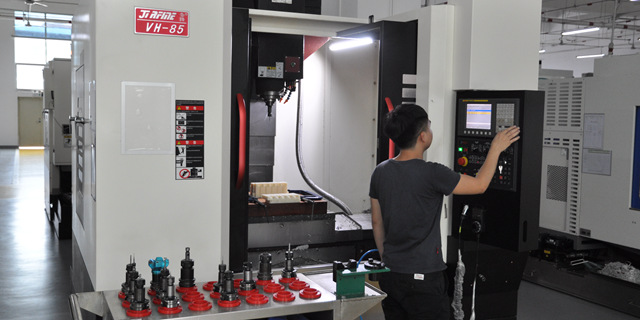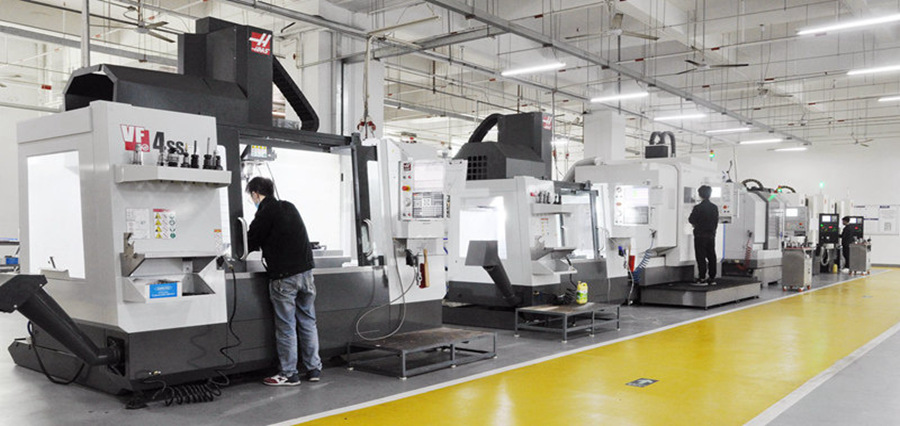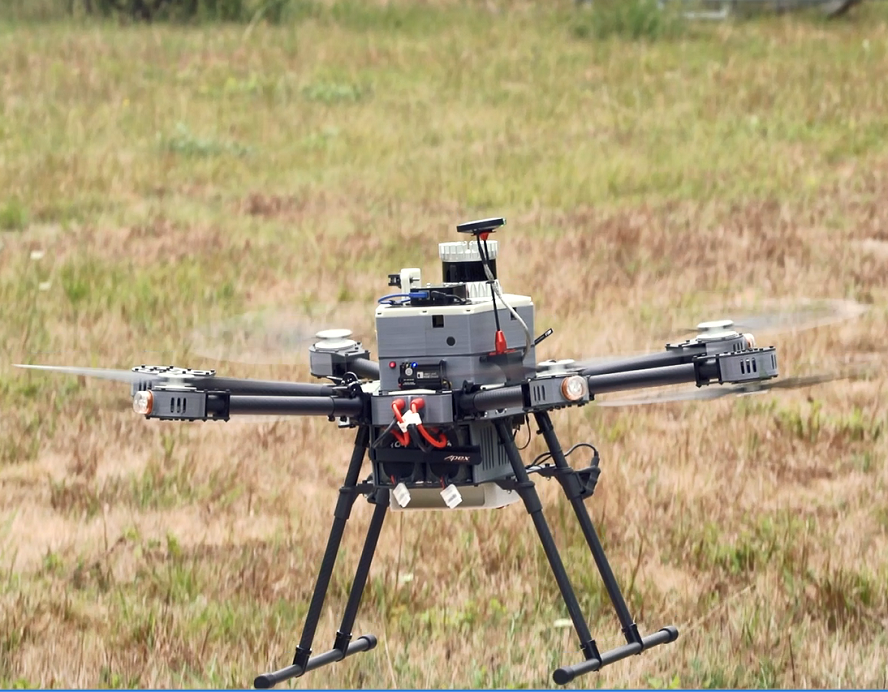The 20th century witnessed the introduction of Computer Numerical Control (CNC) systems into prototyping. Before this period, engineers and machinists machined various components manually using machining tools. As a result, fabricated parts’ precision and accuracy depended on the operator’s skill and experience. However, since CNC rapid prototyping came into the engineering industry, custom CNC machine shops can fabricate engineering parts using computer-guided machines and three-dimensional (3-D) designs. Consequently, they can manufacture high-fidelity products to millimeter precision, at incredible speeds. For this reason, companies can duplicate components without the slightest error, which was not possible with manual machining.
CNC Shops and Machines
A CNC shop is not a “shop,” but a building where machinists and design engineers manufacture machined parts using prototyping machines. These manufacturing premises can either be large- or small-scale, depending on the manufacturer’s capacity. These machines feature cutting, shaping, drilling, and fabricating components that can form 3-D models from dense materials, such as plastic and metal.
Apart from the subtractive equipment they use in manufacturing these components, they also use design systems, like 3-D printers, to create the design formats for machining. These machining shops have gone from being the old, crude manufacturing plants to becoming state-of-the-art prototyping industries where manufacturers can produce intricate prototyping components with high precision. As a result, there are some requirements to consider when selecting an ideal CNC shop for a prototyping project.
What to Consider when Choosing a Good CNC Machine Shop
Product developers, CNC prototyping designers, and manufacturers searching for ideal CNC shops to execute their CNC projects must consider some essential factors. Not all machine shops offer the same quality services – some are better for specific requirements and industry than others. Here are what to consider before contacting a CNC machine shop:
- Protection of Design Rights
Design engineers looking for CNC shops to fabricate their designs should ensure that these manufacturers do not leak or sell their CNC designs to other manufacturers or third parties. In actuality, these CNC manufacturers sign a Non-Disclosure Agreement (NDA) that enforces them to keep the CAD design formats private. Avoid any manufacturer that does not adhere to this agreement.
- Competitive Pricing
CNC shops have different pricing based on their expertise, experience, results, human resources, and machining equipment. As a designer, quality comes first, then pricing. An ideal CNC shop should be able to deliver a top-quality job at an affordable price. There is no guarantee that manufacturers offering the lowest prices provide the best-machined products, and vice-versa. Hence, a designer should take a cue from other customers’ reviews, as they have first-hand experiences with the CNC machining shop.
- Excellent Customer Service and Experience
The goal of reputable CNC shops is to manufacture quality products and provide a unique customer experience. As a result, they hire certified design engineers, designers, and computer programmers to design high-fidelity products for clients. Additionally, these machine shops can handle customers’ complaints satisfactorily. To locate such providers, a designer should physically meet with the manufacturer; this would determine if the client is to proceed with the firm or look elsewhere.
With these factors in mind, locating a good CNC shop will be a walk in the park. CNC machining provides an ideal process to manufacture top-quality prototypes, and no one does it better than a reputable CNC machine shop.
How to Choose the Right CNC Shop
When selecting a CNC shop as a designer, it is essential to consider the vendor’s experience, skillset, workforce, and resources. Although the advent of robots has replaced a massive part of manual labor, a machined shop still needs operators, designers, and computer programmers to program the CNC machines to manufacture prototypes. Hence, clients should look at the robustness and quality of a CNC vendor to determine if the shop can handle the project.
Selecting a CNC Shop Based on the Equipment Used
When contracting a CNC shop’s services, it is ideal to look at the prototyping tools they use to cut, bend, mold, and form prototypes. The type of machining tools used determines the quality of work produced. Additionally, the operator’s expertise counts, as well. Some of the prototyping machines include, but are not limited to, the following:
- CNC Milling Equipment
CNC milling tools, also known as machining centers, use computer programs to cut and form components from the workpiece. These machines have rotary cutters that turn raw, solid materials into finished products, using various cuts, including roughing and threading. An ideal CNC shop should have these milling machines to cater to the design needs of a designer. Examples include Shop Fox M1111 (a mill and drill tool), Precision Matthews PM-25MV (a CNC pneumatic machine), and OTMT OT2213 (a power-milling tool) – all of which can execute complex milling processes with high precision and incredible speeds.
- Lathe
Lathes or CNC turning centers are prototyping machines that move a workpiece around an axis for a cutting tool to cut, knurl, deform, and drill such substrate. This computer-programmed tool is part of the equipment found in a reputable CNC shop, and it enables cutting machines to fabricate symmetrical prototypes with ease and precision. Depending on the design requirements, a designer can look out for machine shops that operate CNC lathes.
- Coordinate Measuring Equipment
A reputable machine shop should have a coordinated measuring tool to carry out complex prototyping projects. This measuring machine takes the machined workpieces’ geometrical dimension to ensure that the fabricated component aligns with the design specification, with zero tolerance to error or deviation. Consequently, such vendors can produce prototypes with high precision and top quality. Examples of CMMs are gantry, bridge, and cantilever.
Apart from the machining equipment pieces stated above, a machine shop should also have machining tools, like electrical discharge machining (EDM) equipment, bandsaw, surface finishing tools, saws, and other related CNC tools.

Selecting a CNC Shop Based on Quality Control
A reputable machine shop must incorporate quality control in its design and development process of prototypes. Such a vendor should inspect their CNC manufacturing process and the quality of their finished products in conformity to industrial design and fabrication standards. End products are to be free of defects and must look and operate under the design specifications. Avoid CNC shops that do not meet these requirements, even if they provide the lowest costs.
In determining the quality control of CNC products, vendors must carry out an in-process inspection to ensure that they deliver high-fidelity products to designers promptly. These finished products must conform to the design, with zero tolerance for error, including drawings and specifications. Additionally, customer communication counts. A CNC shop needs to communicate effectively with designers and provide satisfaction. In summary, having a quality control and inspection officer indicates that a CNC prototyping company values its work ethics and product quality.
Selecting a CNC Shop Based on Work Safety
In selecting a CNC vendor, a designer should consider its workers’ safety and work environment’s safety. A reputable CNC shop must create a safe atmosphere for operators to use various machining tools. The following guidelines help clients to determine the effectiveness and credibility of a machine shop with regards to work safety:
- Operators are to wear the right clothes for the job. Flammable or/and loose-fitting attires are all disallowed from a CNC shop. They are to put on safety goggles in the CNC machining premises, and when fabricating components – fragments from the machined prototypes can harm them.
- Good health is one main priority for workers in a CNC shop. Without this factor, it will be hard for them to operate CNC prototyping machines and 3-D printers, which will, in turn, affect the quality of finished products.
- The working environment should be clean and safe for design engineers, machinists, designers, computer programmers, and other personnel in a CNC shop. Only trained and certified experts should operate machining equipment. They are to familiarize themselves with new tools before running them. There should also be emergency exit points and muster grounds that operators can quickly access during emergencies and work-related accidents.
Putting these key points into consideration makes it easy for a designer to hire the right CNC shop for a CNC prototyping project.







